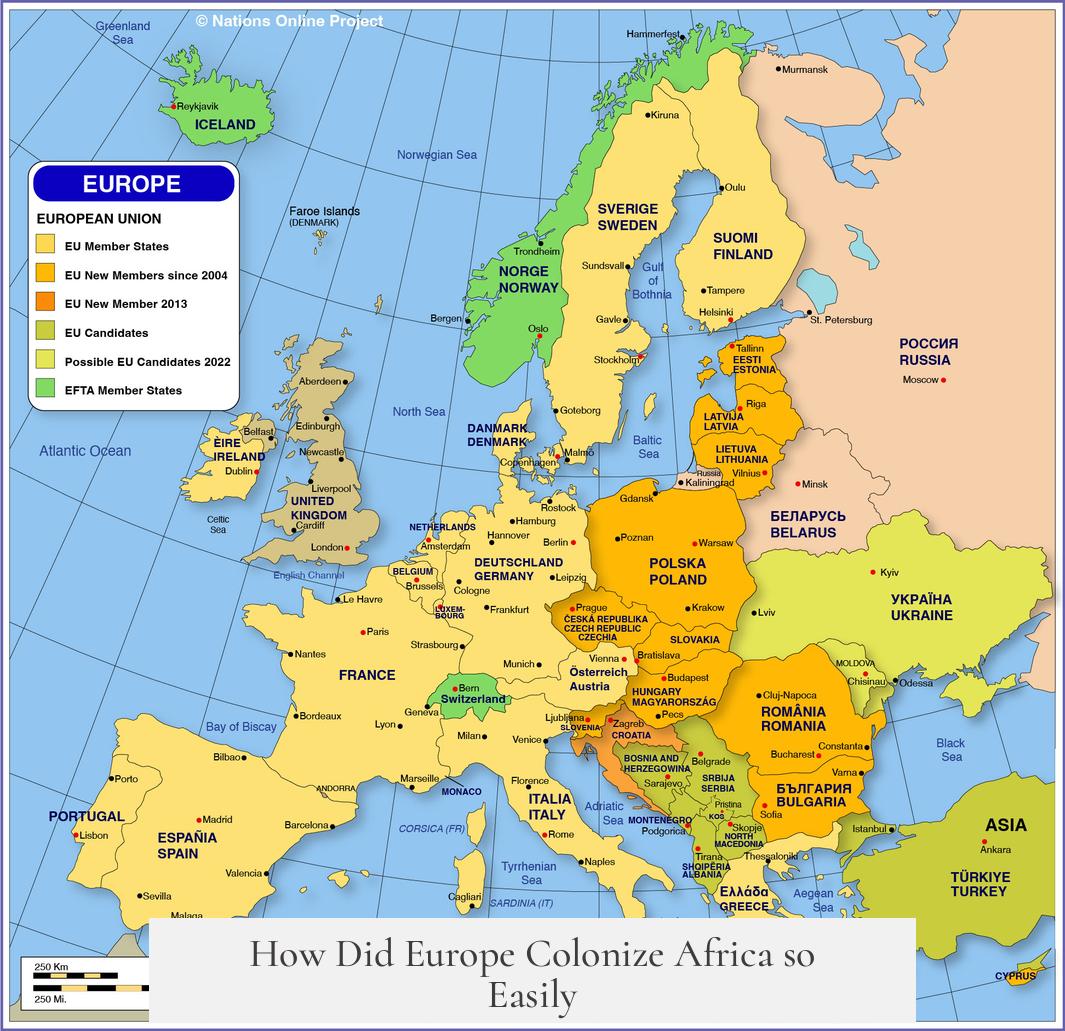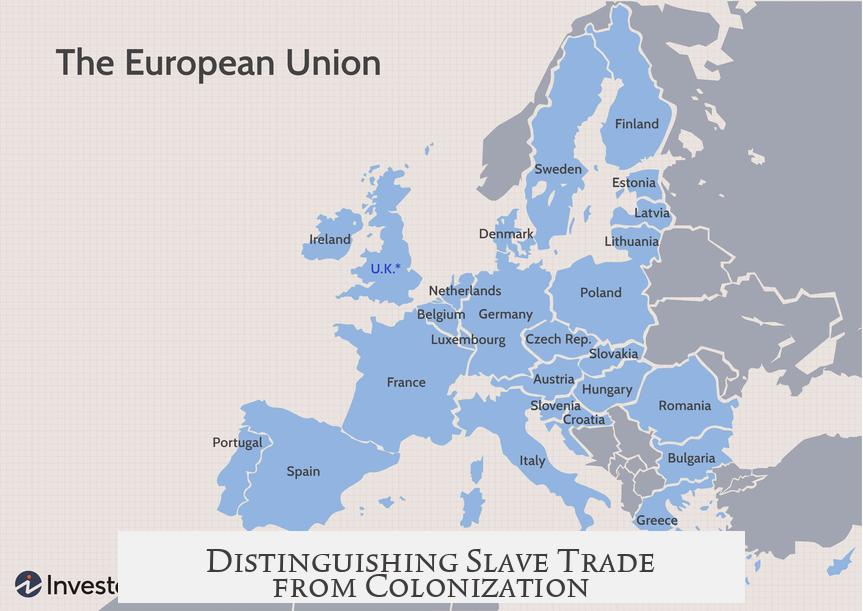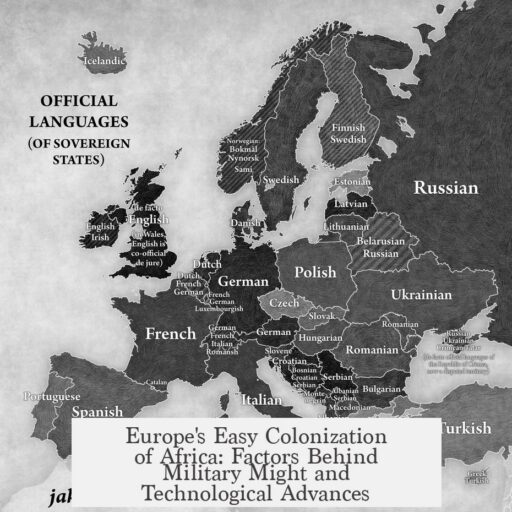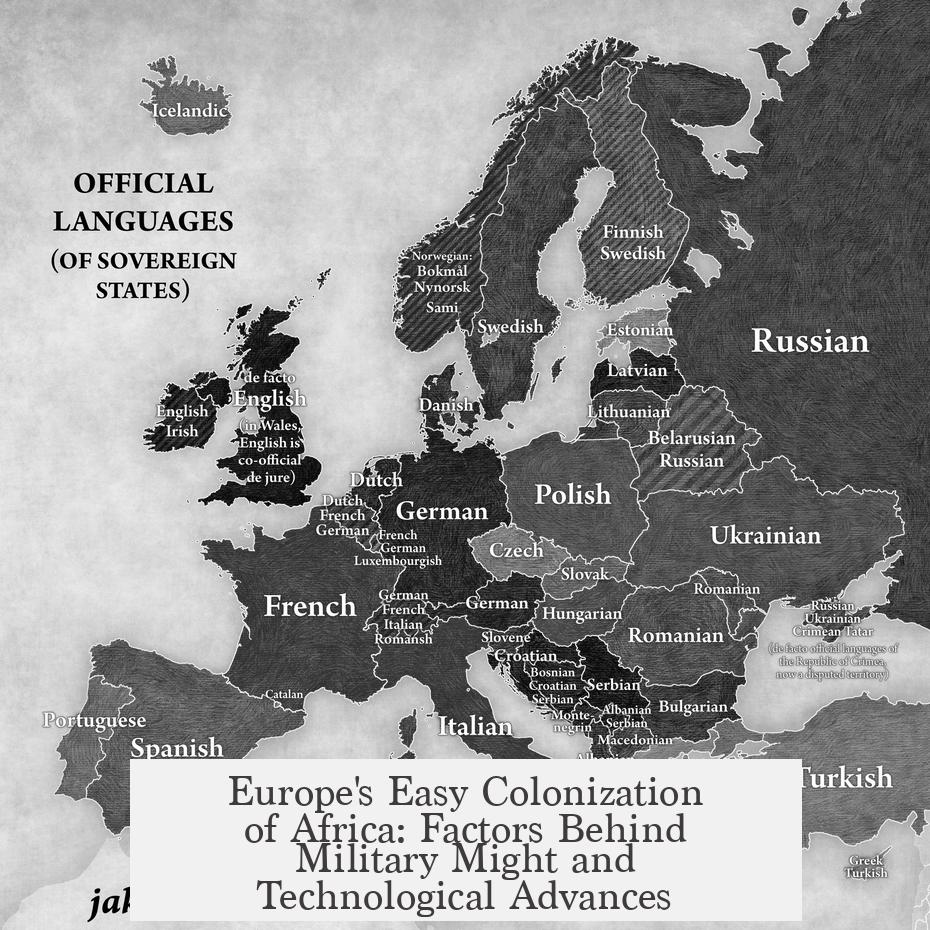Europe colonized Africa so easily mainly due to late territorial ambitions, rising economic incentives after 1860, strong European rivalry, superior military technology, and African political fragmentation. Before the mid-19th century, European involvement in sub-Saharan Africa focused largely on coastal trade, not land control. This delayed direct conquest, despite early European presence dating to the 1440s.
Until around 1860, European authority inland remained minimal. Vast regions like the Congo Basin and the source of the Nile were largely unknown to Europeans. Coastal bases facilitated trade in goods like gold, ivory, and slaves, but did not require deep conquest or settlement.
The slave trade and formal colonization are separate phenomena. The slave trade peaked earlier and largely ended by the time of widespread colonization. The latter began around 1860 with Europeans seeking to directly control territories for resource extraction and plantation agriculture. This shift marked a significant change from retail trade to industrial-scale exploitation, especially in East Africa.
Economic incentives pulling Europeans inland surged after 1860. Plantations for crops such as cotton, coffee, and tea appeared, requiring large-scale land control and labor reorganization. Colonies were often profitable, contradicting earlier notions of costly ventures. This economic motivation aligned with intense rivalry among European powers. Each sought to claim valuable resources and strategically important regions before competitors, intensifying the land rush across Africa.
European military and technological advantages accelerated conquest. In the 19th century, innovations like the Maxim gun, steam-powered ships, rifled artillery, and telegraphs created overwhelming force disparities. Before then, African forces had successfully resisted European incursions, as seen in the 1684 Battle of Maungwe. However, the period between 1860 and 1895 saw rapid and near-complete conquest due to this military gap.
African states mostly lacked large, well-organized armies with modern firearms. Indigenous production of advanced weapons and effective communication systems was limited. African resistance could win battles but rarely entire wars, with Ethiopia’s 1897 victory over Italy at Adowa being a rare exception.
Tropical diseases complicated European settlement inland but did not prevent military conquest. Europeans conquered similarly disease-ridden areas elsewhere, like Southeast Asia and Central America, indicating that disease was an obstacle rather than a barrier.
Comparing Africa’s colonization with the British conquest of India highlights the role of technology and timing. British forces in the 1760s used sailing ships and muskets. By the 1860s, they had steamships, rifles, artillery, and telegraphs, which drastically increased their capability. Similar technological leaps speeding up conquest happened in Africa once territorial ambitions arose.
| Factors Enabling Easy European Colonization of Africa |
|---|
| Late European focus on trade rather than territorial control until the mid-19th century |
| Economic incentives post-1860 for plantations and resource extraction |
| European interstate rivalry triggering a land-grab competition |
| Superior European military technology (Maxim gun, rifles, artillery) |
| African political fragmentation and limited ability to field modern armies |
| Disease environment restricting European settlement but not conquest |
- Europeans first engaged Africa through trade, avoiding inland conquest for centuries.
- Post-1860, plantation agriculture and resource demand drove territorial claims.
- Inter-European competition forced rapid land acquisition across Africa.
- Advanced military technology created unmatched battlefield dominance.
- African polities’ lack of unified, modern armies hampered resistance.
- Tropical diseases decreased settler presence without blocking control.
- Colonial conquest in Africa occurred in less than four decades, a short period marked by rapid expansion.
How Did Europe Colonize Africa so Easily?

Europe didn’t exactly rush into conquering Africa—it just happened suddenly and swiftly after a long period of hesitation and limited involvement. That might sound surprising at first. After all, Europeans had contact with Africa from the 1440s, yet it took until after 1860 for serious colonization to kick off in earnest. So, why did it appear “easy”? Let’s unpack this story in detail.
First, the idea that Europe quickly seized Africa is misleading. Back in 1860, European control in sub-Saharan Africa was hardly noticeable. Picture a map: just a few small islands offshore and thin strips of land along the coasts. Europeans barely stepped more than a few miles inland. Huge regions—millions of square kilometers—remained unknown and unexplored by Europeans. The Congo Basin was a “white space” on maps, Kilimanjaro was unconquered, and the Nile’s sources untouched.
Even though Europeans had developed impressive tech by mid-19th century—steamships, rifled artillery, telegraph networks—they made little headway. Why? Their relationship with Africa until then mostly centered on trade. They wanted gold, ivory, and regrettably, slaves. They didn’t *need* to conquer lands because trade sufficed. This setup lasted over 400 years.
**So, if Europeans had the tools and the time, what changed after 1860?**
This is where things get interesting. The period from 1860 to 1895 marks a whirlwind transformation. One big change was Europe’s ability to extract wealth more efficiently. Take East Africa as an example. Prior to 1860, trade was retail-scale: ivory, a bit of coffee. Suddenly, Europeans with plantation ambitions arrived. The British and Germans established tea, coffee, and cotton plantations—not mere trading outposts but industrial farms stretching hundreds of kilometers inland. Such an enterprise could not exist without military conquest and social upheaval.
Accompanying this economic lure was European rivalry. Once one power started grabbing territory, others scrambled to do the same. Think of it as a colonial “race” fueled by greed and competition. Countries scrambled to claim resources like coal, rubber, iron, and cotton before their rivals did.
Military and Technological Superiority: The Real Game-Changer
Here lies a crucial point: Africa was not a pushover. Before the 19th century, African armies had success repelling European intrusions. The Portuguese, for instance, faced defeat at Zimbabwe’s Battle of Maungwe in 1684. Yet, during the rapid conquest phase (1860-1895), European military power peaked. They wielded the Maxim gun—the first effective machine gun—and had rifles, artillery, steam-powered ships, and telegraph communication systems. African forces lacked indigenous production of such advanced weapons and large-scale administrative structures for modern warfare logistics. They could win occasional battles but not entire wars.
Exception? Ethiopia in the Adowa campaign of 1897. It was the strongest African state and managed a stunning victory over Italy. That episode proves resistance was possible, but rare.
Diseases: A Challenge but Not a Barrier
Tropical diseases posed a significant, yet complicated, hurdle for Europeans. Settlers often succumbed to illnesses uncommon in Europe. This limited long-term European settlement in Africa, unlike in temperate colonies like North America. Despite this, European powers still managed to colonize large swaths. Comparable tropical environments—such as Southeast Asia and Central America—were colonized with similar disease obstacles, suggesting Europeans could adapt.
Distinguishing Slave Trade from Colonization

People often confuse the slave trade period with colonial conquest. They are separate events. The slave trade—which saw millions of Africans forcibly removed—dwindled by the mid-19th century. Actual colonization, with armies, governance, and land seizures, mainly took place after 1860.
A Technological Leap vs. Earlier Colonization Efforts
Consider India. The British spent nearly a century conquering it, starting in the 1700s with muskets and sailing ships. By the 1860s, British military tech had evolved dramatically—steamships, rifles, telegraphs. If the British had delayed conquering India until then, they likely would’ve subdued it faster. Africa experienced something similar but on a more condensed timeline. Europeans waited, then employed vastly superior tech and organization, making conquest notably “easier.”
Summary: Putting the Pieces Together
So why did Europe colonize Africa so easily, seemingly overnight after centuries? The answer is a blend of factors:
- Europe was content with coastal trading posts for centuries and showed little interest in territorial control before 1860.
- A surge in economic incentives made African resources and plantation agriculture hugely attractive after 1860.
- Intense competition among European powers triggered a land grab, forcing haste and aggression.
- Technological and military superiority during the rapid conquest era was overwhelming compared to African states.
- Most African polities lacked the military and organizational capacity to repel prolonged assaults.
- Tropical diseases limited European settlement but did not prevent military campaigns and administration.
- A massive technological and organizational gap composed a unique moment in history, allowing Europe to conquer in a focused three-decade blitz.
What Can Modern Readers Take Away?
History isn’t just dates and battles. This story reminds us how technology, economics, and geopolitics interweave. It shows how waiting—or more accurately, underestimating the stakes—can change the course of entire continents. It invites questions: What if Europeans had pressed more aggressively before 1860? What if African societies had access to similar industrial tech? Could history have unfolded differently?
Rather than a tale of effortless bullies, the colonization of Africa reflects a complex dance of timing, tech, wealth, and rivalry. The Europeans seized a unique moment in history—and Africa’s tragic story unfolded as a result.
History might seem straightforward when summarized clicking on a map, but beneath the surface lies a rich, tangled web of decisions, innovations, and human struggles. That is the real story of how Europe colonized Africa *so easily*.



